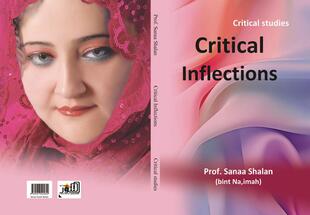-
Lebanon’s Russian Doll Crisis

Few doubt the complexity of Lebanon’s body politic. ‘A House of Many Mansions’ one book described the political landscape of a country that has a significantly devolved series of authorities existing simultaneously and where national government has severe limits to its powers. This national government has undergone a rolling set of crises of the last several years that has been accelerated by wider global economic trends and of course the emergence of COVID-19.
Today Lebanon, a country that’s recent history demonstrates both resilience and fragility, faces a significant test as it faces the prospect of a ‘Russian Doll’ series of challenges all urgent, interlinked and with the potential to change the country’s politics dramatically.
Veteran Lebanon commentator Michael Young, summed up the economic challenge facing the country as essentially a choice between accepting an IMF bailout and all the conditions that come with it, or face a “path of bankruptcy, state collapse, chaos, possibly famine, and mass emigration”.
Prior to COVID-19 Lebanon had faced another period of political gridlock with street demonstrations precipitating a collapse of the Government and negotiations between the political elite struggling to find a consensus on a technocratic interim leadership. All the meanwhile the issues of corruption and the structural challenges defining the country’s economy continued to squeeze the living standards of normal Lebanese.
COVID-19 exacerbated existing trends and although the recorded numbers have been far off Europe or America’s rates, the country has already faced a second wave closure forcing another damaging shutdown that the country can ill afford. Studies by Lebanese research company InfoPro estimate that around 220,000 people lost their jobs between October 2019 and the end of January, while half of the companies surveyed reported salary cuts of over 40% whilst the Lebanese pound lost around 60% of its value by May.
Social Affairs Minister Ramzi Musharrafieh has said that 75% of the population are in need of aid and the World Bank has warned of startling increases in rates of poverty. Lebanon’s economy has previously been sustained by critical income from remittances from abroad something that has been steadily squeezed and then fallen off a cliff following COVID-19. Locals have told reporters that they could afford food during the country’s prolonged civil war but have never seen hardship like this.
Prime Minister, Hassan Diab, has acknowledged that Lebanon is on the brink of an “unimaginable food crisis” and Human Rights Watch have warned that “a large swathe of the population may be unable to meet the daily minimum dietary energy requirements, which could have huge public health consequences, including stunting the physical and cognitive development of children and making the population more prone to disease.”
The only practical way out of this maze of interlinking crisis would appear to be through the IMF. As Michael Young explained; “without such funds, Lebanon will not be able to feed itself within a few months, nor will it be able to import fuel or medicine”. However, IMF money is not a blank cheque and the critical question is whether Lebanon’s political system is able to stomach the reforms demanded of it in exchange for this money?
Evidence from the 53-page rescue plan agreed in April didn’t bode well in this respect. Whilst it recognises the scale of the challenge, estimating the country’s total sovereign debt at about $90 billion or 176% of GDP — one of the highest debt ratios in the world, it has yet to grip the scale of reforms needed in response.
The 101 of the issue is the tackling an economic crisis against the background of a public health crisis that has at its core a legacy of historical and active political reasons for existing. For instance, economists have citied key areas of reform being the state power company Electricite du Liban (EdL); Telecom, customs and ports; public pensions and the state payroll. Yet all of these sectors have differing relations with different political stakeholders in the country all of whom will be ultra-sensitive to perceived attacks on their powerbase.
Yet such is the spectre of mass starvation and economic devastation if the IMF loan is not agreed that some speculate that if Lebanon is ever to have a political revolution from within, this is the moment for it. It is indeed a huge test of whether a sub-national and often regional body-politic can address a national challenge in a genuinely different way and the clock is ticking as the food continues to run out.

by : jamse danselow
Tags
You May Also Like
Popular Posts
Caricature
BENEFIT Sponsors BuildHer...
- April 23, 2025
BENEFIT, the Kingdom’s innovator and leading company in Fintech and electronic financial transactions service, has sponsored the BuildHer CityHack 2025 Hackathon, a two-day event spearheaded by the College of Engineering and Technology at the Royal University for Women (RUW).
Aimed at secondary school students, the event brought together a distinguished group of academic professionals and technology experts to mentor and inspire young participants.
More than 100 high school students from across the Kingdom of Bahrain took part in the hackathon, which featured an intensive programme of training workshops and hands-on sessions. These activities were tailored to enhance participants’ critical thinking, collaborative problem-solving, and team-building capabilities, while also encouraging the development of practical and sustainable solutions to contemporary challenges using modern technological tools.
BENEFIT’s Chief Executive Mr. Abdulwahed AlJanahi, commented: “Our support for this educational hackathon reflects our long-term strategic vision to nurture the talents of emerging national youth and empower the next generation of accomplished female leaders in technology. By fostering creativity and innovation, we aim to contribute meaningfully to Bahrain’s comprehensive development goals and align with the aspirations outlined in the Kingdom’s Vision 2030—an ambition in which BENEFIT plays a central role.”
Professor Riyadh Yousif Hamzah, President of the Royal University for Women, commented: “This initiative reflects our commitment to advancing women in STEM fields. We're cultivating a generation of creative, solution-driven female leaders who will drive national development. Our partnership with BENEFIT exemplifies the powerful synergy between academia and private sector in supporting educational innovation.”
Hanan Abdulla Hasan, Senior Manager, PR & Communication at BENEFIT, said: “We are honoured to collaborate with RUW in supporting this remarkable technology-focused event. It highlights our commitment to social responsibility, and our ongoing efforts to enhance the digital and innovation capabilities of young Bahraini women and foster their ability to harness technological tools in the service of a smarter, more sustainable future.”
For his part, Dr. Humam ElAgha, Acting Dean of the College of Engineering and Technology at the University, said: “BuildHer CityHack 2025 embodies our hands-on approach to education. By tackling real-world problems through creative thinking and sustainable solutions, we're preparing women to thrive in the knowledge economy – a cornerstone of the University's vision.”
opinion
Report
ads
Newsletter
Subscribe to our mailing list to get the new updates!




















